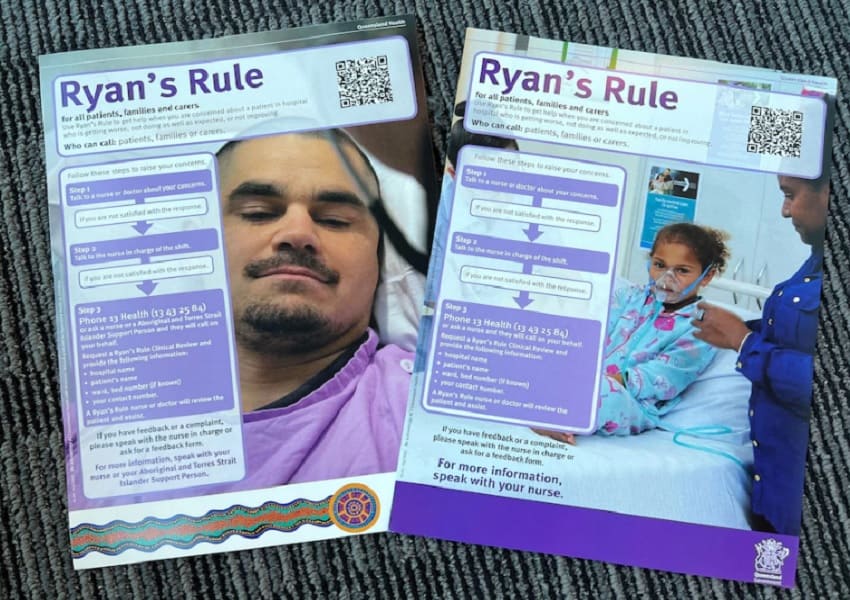Understanding Ryan’s Rule: A Comprehensive Guide for Concerned Parents
Hello, lovely parents! Today, we’re diving into a topic that’s near and dear to our hearts: the safety and wellbeing of our children. Have you ever found yourself in a hospital with your little one and felt that something just wasn’t right, but you weren’t sure what to do about it? Enter Ryan’s Rule – a lifesaver in such scenarios. In this guide, we’ll explore what Ryan’s Rule is, how it works, and why it’s an important ally for parents in the healthcare system. So, grab a comfy chair, and let’s get started on this journey to empower you with knowledge!
What is Ryan’s Rule?
Emerging from a heart-wrenching story of a young boy named Ryan Saunders, Ryan’s Rule is a patient advocacy initiative that was implemented to ensure that no parent’s concerns go unheard when their child is in the hospital. After Ryan tragically passed away due to unrecognized complications, his parents campaigned for a system that would allow caregivers to request a second opinion if they believed a patient’s condition was worsening or not being adequately managed. This rule is a beautiful legacy that empowers you, as a parent, to be an active participant in your child’s care.
The Inspiration Behind Ryan’s Rule
Our understanding of Ryan’s Rule isn’t complete without knowing the touching story of its namesake, Ryan Saunders. At just three years old, Ryan was taken to the hospital with a chest infection. Despite ongoing treatment, Ryan’s condition deteriorated. His parents expressed their concerns repeatedly, but unfortunately, their fears were not acted upon in time. After this heartbreaking event, Ryan’s Rule was established to ensure open communication between medical staff and family members is honored and acted upon promptly.
How Does Ryan’s Rule Work?
Ryan’s Rule is primarily associated with hospitals in certain regions, and its implementation can vary. However, the foundation remains the same. As a parent, if you’re worried about how your child’s illness is being handled, despite medical treatment, you have a clear path to escalate your concerns. Typically, there’s a simple three-step process to follow:
- Speak up: Talk to the nurses or doctors about your concerns.
- Escalation: If you feel your concerns are not being addressed, request a review by a senior staff member.
- Clinical Review: If you’re not satisfied with the response, invoke Ryan’s Rule to seek an immediate review of your child’s situation by a rapid response team.
Why is Ryan’s Rule Important for You and Your Child?
Being in a hospital can be a nerve-wracking experience, and it’s sometimes hard to know if your child’s medical treatment is proceeding as it should. Ryan’s Rule serves as your safety net. It reinforces the idea that caregivers have valuable insights and are essential to the care team. This rule encourages you to trust your instincts and ensures that your concerns are not just heard but are acted upon with the urgency they deserve. It’s a vital checkpoint in pediatric healthcare, granting peace of mind and potentially life-saving outcomes.
When Can You Use Ryan’s Rule?
The application of Ryan’s Rule isn’t limited to specific conditions or illnesses. Whether it’s a subtle change in behavior, a gut feeling, or an overt worsening of symptoms, if you believe that something isn’t right with your child’s health, Ryan’s Rule is there for you. It is designed to be invoked when your worries are not alleviated by the current clinical assessments or ongoing treatment plans.
At this point, you might be feeling a bit more informed about this incredible provision within our healthcare system. But stay tuned, wonderful parents! We have much more to discuss about Ryan’s Rule, including how to effectively communicate your concerns and real-life accounts of how invoking Ryan’s Rule has made a difference in the lives of many families.
In the next part of our guide, we’ll delve deeper into the specifics of how you can use Ryan’s Rule, tips for effective communication with healthcare providers, and answers to frequently asked questions by parents just like you. It’s about being fully equipped to stand up for your child’s health when it matters most. So, let’s move forward together and ensure that your voice is always heard in the healthcare journey of your little ones!

Five Key Points for Parents Preparing to Invoke Ryan’s Rule
As you become familiar with Ryan’s Rule and how it can be a crucial tool for your child’s healthcare, there are a few important things you should keep in mind. Preparing for the possibility of invoking Ryan’s Rule can help you navigate the healthcare system more effectively and advocate for your child’s well-being with confidence. Let’s explore the five key points to remember:
1. Keep Detailed Records
Document everything. Keep a logbook of your child’s symptoms, treatments, medications, and any interactions with healthcare professionals. Details matter, and having a chronology of events can be invaluable if you need to express concerns or reference past discussions.
2. Understand Your Rights and Procedures
Familiarize yourself with the policies and procedures of the hospital your child is attending. Knowing your rights under Ryan’s Rule can help you communicate more effectively and expedite the review process when necessary.
3. Maintain Open Communication
Establish a respectful and open line of communication with your child’s healthcare team from the start. If you have concerns, voice them clearly and calmly. Good communication can often prevent miscommunication and ensure your concerns are taken seriously.
4. Educate Yourself on Your Child’s Condition
The more you understand your child’s medical condition, the better prepared you are to detect any changes in their health. While you don’t need to become an expert, a well-informed parent can work more collaboratively with medical staff.
5. Know the Signs to Watch For
Learn the signs that may indicate your child’s condition is changing or not improving. These might include changes in vital signs, alertness, pain levels, or behavior. Recognizing these signs early can lead to timely interventions.
In addition to these five points, take care of your well-being too. Parenting, especially under stress in a hospital setting, can be draining. Adequate rest, nutrition, and emotional support are crucial, so you can be the strong advocate your child needs.
Remember that the healthcare team is your partner in care. Working together, expressing concerns respectfully, and being engaged in the process can contribute profoundly to the outcomes of your child’s healthcare journey. With the support of Ryan’s Rule, you have an additional layer of assurance that your voice, as a parent or caregiver, will be valued and heard when you feel something is not quite right.
Now that you’re armed with a better understanding and practical tips for using Ryan’s Rule, you can feel more confident if you ever find yourself in a position where you need to advocate for your child’s health. Listen to your intuition, communicate effectively, and remember that Ryan’s Rule is there to ensure your child receives the best possible care. Let’s ensure that Ryan’s legacy continues to make a positive impact in the lives of families and children within the healthcare system for years to come.
For more great fun click here. For more information see here
Disclaimer
The articles available via our website provide general information only and we strongly urge readers to exercise caution and conduct their own thorough research and fact-checking. The information presented should not be taken as absolute truth, and, to the maximum extent permitted by law, we will not be held liable for any inaccuracies or errors in the content. It is essential for individuals to independently verify and validate the information before making any decisions or taking any actions based on the articles.




